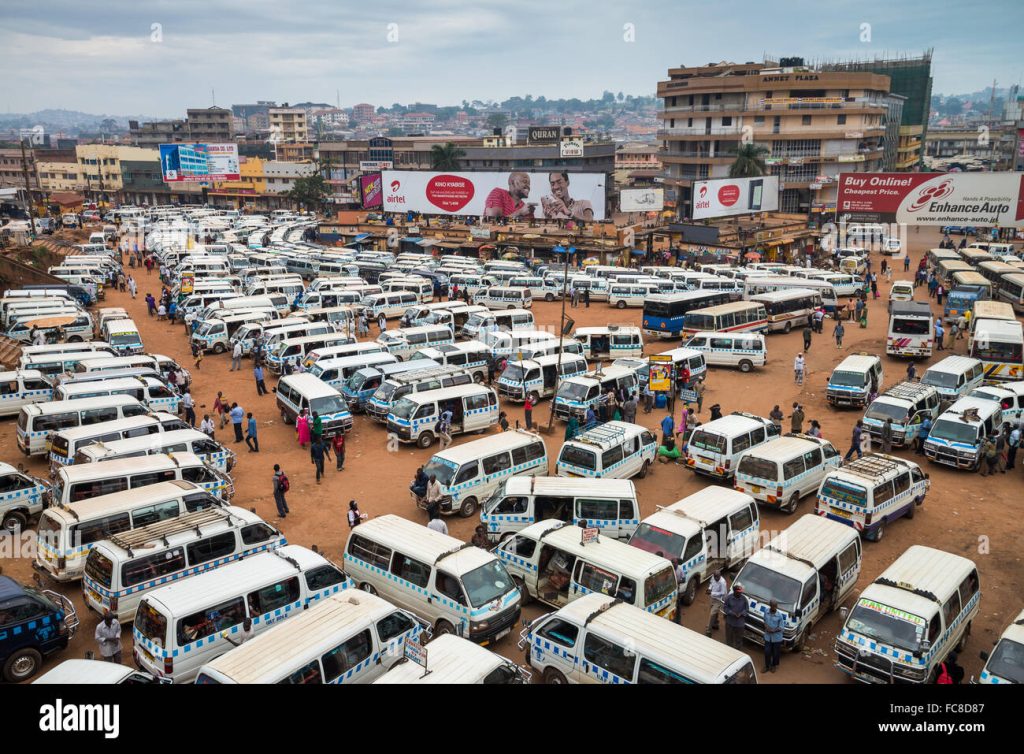
By George Bukenya
As Uganda continues to import and use second hand motor vehicles and motor cycles commonly known
as Bodabodas, the disease burden evolved from such transport activity is increasing at a high rate thus
claiming a huge portion of lives in the country.
This is due to compromise air quality caused by emissions mostly from vehicle and motor cycles and the
problem have been worsened by the excessive cutting of trees and other plants which would help to
mitigate such a problem.
A total of 31,600 people die every in Uganda due to air pollution related diseases annually especially in
Urban area while globally such pollution is associated with 6.7 million people premature deaths a figure
that is almost equal to deaths claimed by Covid-19 which stood at 6.9 million people during the almost
two year spell and surpasses the total lives claimed by malaria, HIV and accident combined annually.
Dr. Rebecca Nantanda a researcher and a lecturer at Makerere University Medical School attached to
Uganda Lung Institute attributed the increase in strokes and heart attacks to the impurities in air people
breathe in. She said that diseases such as pneumonia and asthma are on the increase due to air
pollution.
“Impurities in air have huge effect on our overall health for instance if a person suffers from
Turbercrosis (TB) and after recovering he/she will still because the lungs of such a person will not
function well.’’ Dr. Nantanda explained.
She advised people to have routine check-ups for their lungs just like they do for other diseases because
this will help them to know what health problem they have and be able to mitigate it early.
The Executive Director of National Environment Management Authority (NEMA), Dr. Barirega
Akankwasah while addressing reporters at Uganda Media Centre in Kampala said that studies on sources
of pollution conducted in Kampala City revealed that transport in the leading cause of air pollution
followed by domestic and biomass burning.
He also revealed that Air quality monitoring data especially in Kampala metropolitan indicate an
increase in air pollution from an annual average of 39.5 micro grams per cubic meter in 2019 to 41 in
2024 which is about eight times above the annual average of 5 g/m3 recommended by the World Health
Organization.

Dr. Akankwasah also said that government is making several interventions to avert the resultants effects
of air pollution, firstly the law was enacted to criminalize the industries that will fail to adhere to the
acceptable standards of emissions, cancellation of land titles located in wetlands, the National Standards and Regulation for Air quality have also been establish whose mandate will be monitoring violation and enforcing adherence to the standards.
Other interventions are; Tree planting to restore the National forest cover and this according to NEMA
executive director has so far yielded positive results as it has improved forest cover from 9.5% before to
now 13.3% leading to coverage of 1.9 million hectares of forest now.
He also launched the Air quality awareness week which will run from 6 th -10 th May 2024 under the theme: “Knowing your air to Protect Human Health and the Environment”.

The Deputy Executive Director of Kampala Capital Authority (KCCA) Eng. David Luyimbazi who also addressed the media in the same press briefing said that the problem or air pollution requires public participation if we are to mitigate it proper because everybody Kampala is part of the cause.
Eng. Luyimbazi said that part of the solution to combat the problem of air pollution is the introduction of rapid transport system in the city which will see bus replacing matatu taxi, individual motor vehicles and boda bodas accessing the city.
“On behave of government , KCCA has already signed an agreement with the company that is going to
bring buses which we think will help minimize air pollution coming from emissions by the transport
activity and we are just waiting for them to start.’’ Eng. Luyimbazi said.
He also said that KCC is still advocating for use of bicycles and electric motor cycles as a way of reducing
on the air pollution as well as traffic congestion in the city.
Prof. Engineer Binomugisha the head of department of Computer School at Makerere University who is behind the innovation of Air monitoring technology machines the first of its kind said his Airgo company has 138 air monitoring machines to several cities in Uganda and 100 across other African Cities such as Lagos,Accra, Nairobi Bujumbura and Madagascar.